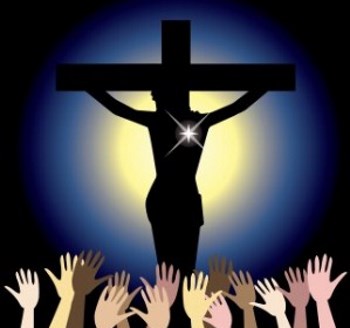Why Society needs Christ
 Regular columnist James Knight contemplates a society without faith, and a faith where man is at the centre, and determines that the world is better off with Christ at the centre.
Regular columnist James Knight contemplates a society without faith, and a faith where man is at the centre, and determines that the world is better off with Christ at the centre.
One state of being that has been desired by masses of people for centuries is one in which religious belief has been weeded out of society, culminating in a nation of people who have no belief in God and no religious faith whosoever.
But it is also an entirely untested state of affairs, which even Nietzsche, one of the founders of this contemporary strident anti-theism, acknowledged could totally deracinate the moral and social order that has grown throughout the centuries alongside religious faith.
I do not think that without religion there'd a be a Hobbesian collapse of society - for there are enough people that value goodness, peace, kindness, tolerance and reason to suggest we could build a pretty decent society on the surface. And doubtless, we wouldn't miss all the nasty, facile and cringe-worthy elements of religion.
But this would be wholly untested waters, and I have serious doubts about such a society. I think without the multitude of qualities, exploratory intellection and hope attached to religious faith, it would be a society not only utterly dejected by a futile reliance on human beings, but also a society full of hopeless parochialism - and with something missing from our lives that's more integral to our happiness, our well-being, our intellect, our hopes, our creativity and our purpose than we could at present imagine.
If a world without religion is untested by us, by equal measure some of the worst elements of religion in the world is (thankfully) untested by most of us too. For example, I don't understand, and I don't suppose any of us not of this mindset can understand either, is how anyone affiliated with any religious cause can think that killing of innocent people - on the streets, in nightclubs, in train stations, or in any other public place - is the answer.
I mean, although it would be equally horrible, I could sort of understand wanting to harm politicians that had waged war on your country - but I really struggle to get into the head of someone who murders innocent civilians who have no connection to their countries' governments, and are often, in fact, highly critical of them.
The reason I think this mystifies is because badness for badness' sake is something humans don't do all that often. Behind our most atrocious acts there is usually some kind of misguided political agenda, some warped religious motive, or the manifestation of some inner pain transposed into some misdirected attempt at positive social change.
Killing innocent humans going about their daily business appears to me to tick none of those boxes, and no other boxes I can think of either, because it appears to be an act without the slightest connection to a cause or the catalysing of anything perceived to be a positive change.
It appears to be pure badness for badness' sake - it takes no revenge over people guilty of past wrongs, it serves no kind of expedience for people in power, it doesn't further a group's cause or purport to make the world a better place, and there are no conditions under which I can envisage that any deity, either real or made up, would advocate such shameful acts.
With pretty much everything but this I can get a sense of why people do what they do. When it comes to killing innocent people in public places, I cannot. Maybe I'm not supposed to, and perhaps it's a good thing this kind of mindset is so inscrutable to me.
The truth that counteracts those two extremes - that is, having no faith, and having a faith that places 'self' at the centre, is the one that places Christ at the centre. God becoming incarnate is the truth that protects us from having to look too far inwards to ourselves, but also so far outwards that God becomes an oblique abstraction onto whom we attach our own personalities anyway.
What Christ does by becoming man and living on earth is to present to us a God that's not of our own making - He is, as the book of Colossians says, "The image of the invisible God", and at the same time a God who decimates any faint aspirations we might have had about out-evolving our religious beliefs into something that places humans at the centre of the story.
James Knight is a local government officer based in Norwich, and is a regular columnist for Christian community websites Network Norfolk and Network Ipswich. He also blogs regularly as ‘The Philosophical Muser’, and contributes articles to UK think tanks The Adam Smith Institute and The Institute of Economic Affairs.
The views carried here are those of the author, not of Network Norwich and Norfolk, and are intended to stimulate constructive debate between website users.
We welcome your thoughts and comments, posted below, upon the ideas expressed here.
Click here to read our forum and comment posting guidelines
You can also contact the author direct at j.knight423@btinternet.com